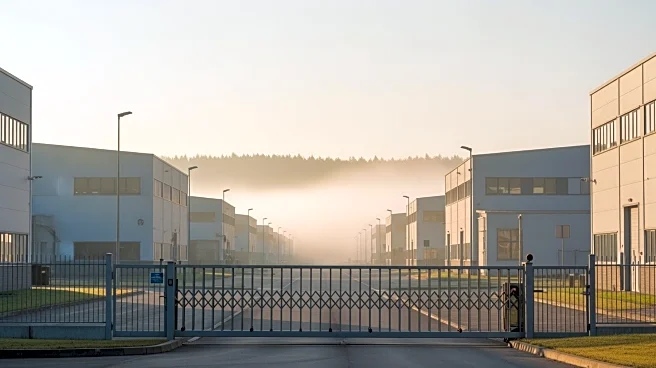What's Happening?
The Iowa Economic Development Authority (IEDA) has announced the allocation of $35.9 million in workforce housing tax credits aimed at supporting residential development across 36 counties in Iowa. This initiative is set to fund 63 projects, which are expected to create nearly 2,000 new residential units. The distribution includes 1,217 units in larger communities and 752 units in smaller towns. In Southwest Iowa, Vision Atlantic Inc., a local nonprofit, will receive $381,675 in tax credits to construct 10 duplex-style homes in the Camblin Hills development. This area is strategically located near schools, a planned childcare center, and other essential services, making it attractive to employees of major local employers such as Cass Health. Other notable allocations include $216,000 to McCarthy Construction in Avoca for six units, $199,999 to Origin Homes 2025, LLC in Panora for five units, and $1,000,000 each to MK Purple Martin, LLC in Shelby and WE Roost, LLC in Council Bluffs for larger housing projects.
Why It's Important?
The allocation of workforce housing tax credits is crucial for addressing housing shortages and supporting economic growth in Iowa. By facilitating the construction of nearly 2,000 residential units, the initiative aims to attract and retain workers in various communities, thereby boosting local economies. The development projects are expected to provide affordable housing options, which are essential for sustaining workforce populations in both large and small towns. This move is particularly significant for areas like Southwest Iowa, where many employees currently commute from outside the region. The tax credits will help reduce commuting distances, improve quality of life, and potentially increase local spending, benefiting businesses and services in these communities.
What's Next?
As the projects funded by the workforce housing tax credits progress, stakeholders including local governments, construction companies, and community organizations will likely monitor the developments closely. The successful implementation of these projects could lead to further investments in infrastructure and services, enhancing the overall appeal of the regions involved. Additionally, the IEDA may continue to evaluate the impact of these tax credits on local economies and consider future allocations to support ongoing housing needs. Community engagement and feedback will be essential in ensuring that the housing developments meet the needs of residents and contribute positively to the local environment.











